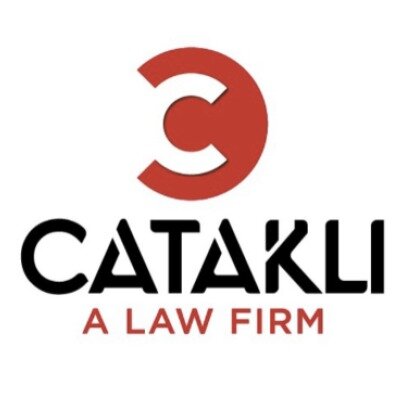Best Debt Capital Markets Lawyers in Luxembourg
Share your needs with us, get contacted by law firms.
Free. Takes 2 min.
List of the best lawyers in Luxembourg, Luxembourg
About Debt Capital Markets Law in Luxembourg, Luxembourg
Debt Capital Markets (DCM) in Luxembourg refer to the sector of financial markets where entities such as corporations, financial institutions, and governments issue debt securities to raise funding. These securities often include bonds, notes, and other fixed-income instruments. Luxembourg has emerged as a leading European venue for structuring and listing debt securities, thanks to its investor-friendly regulatory environment, global accessibility, and robust financial infrastructure. The country is renowned for the Luxembourg Stock Exchange (LuxSE), which hosts thousands of international bond listings, making Luxembourg a hub for cross-border capital market transactions.
Why You May Need a Lawyer
Engaging the services of a lawyer experienced in Debt Capital Markets in Luxembourg can be essential for a variety of reasons. Common situations where legal counsel is invaluable include:
- Structuring, issuing, or listing corporate bonds, medium-term notes, or structured debt products
- Navigating complex regulatory requirements enforced by Luxembourg authorities and the European Union
- Conducting due diligence to ensure compliance with prospectus, transparency, and disclosure obligations
- Advising on taxation, listing regulations, and investor protection laws
- Drafting and reviewing offering memoranda, listing documents, or contractual agreements
- Managing legal risks in cross-border transactions involving multiple jurisdictions
- Addressing disputes, defaults, or restructuring of debt securities
- Guiding initial public offerings (IPOs) or private placements involving debt instruments
- Liaising with regulatory bodies, custodians, and trustees
- Ensuring the smooth and lawful operation of investment vehicles such as securitization platforms
Whether you are an issuer, investor, arranger, or trustee, legal advice is essential to avoid costly mistakes and ensure the success of your transaction.
Local Laws Overview
Luxembourg’s legal and regulatory framework for Debt Capital Markets is shaped by both national and European Union laws. Key aspects that market participants need to consider include:
- Prospectus Regulation: Luxembourg follows the EU Prospectus Regulation for the preparation and approval of listing documents and prospectuses. The Luxembourg Commission de Surveillance du Secteur Financier (CSSF) is responsible for overseeing compliance.
- Luxembourg Stock Exchange Rules: The LuxSE has its own listing requirements for both its regulated market and the Euro MTF, a leading exchange-regulated market for debt securities.
- Securitization Law: The Luxembourg Securitization Law offers a flexible environment for securitizing a wide range of assets, making the country attractive for structured finance transactions.
- Transparency and Disclosure: Issuers need to comply with strict rules on transparency, ongoing disclosure of material information, and market abuse prevention.
- Cross-border Considerations: Due to its central role in international finance, Luxembourg law often interacts with foreign legal frameworks, requiring careful coordination in global transactions.
- Taxation: Tax laws in Luxembourg can offer significant advantages, though structuring must always consider anti-abuse statutes and international tax treaties.
A lawyer versed in Debt Capital Markets law can help you understand and efficiently navigate these and other complex local legal considerations.
Frequently Asked Questions
What types of debt securities can be issued in Luxembourg?
Commonly issued debt securities in Luxembourg include corporate bonds, government bonds, medium-term notes, covered bonds, convertible bonds, securitization notes, and other structured products.
Do I need to obtain regulatory approval before issuing debt securities in Luxembourg?
In many cases, yes - especially if the securities will be offered to the public or listed on the Luxembourg Stock Exchange. The CSSF typically reviews and approves prospectuses under relevant laws.
What is the Luxembourg Stock Exchange (LuxSE)?
LuxSE is a key European exchange, renowned for its wide range of listed international debt securities, including green and sustainable bonds. It operates both a regulated market and the Euro MTF exchange-regulated market.
What are the main regulatory authorities for DCM in Luxembourg?
The main authorities are the Commission de Surveillance du Secteur Financier (CSSF) and the Luxembourg Stock Exchange (LuxSE).
Can foreign entities issue debt securities in Luxembourg?
Yes, Luxembourg welcomes issuers from around the world, making it a preferred destination for cross-border debt issuances.
How long does it take to list a bond on the LuxSE?
Timeframes vary depending on the complexity of the transaction and the completeness of documentation but can be relatively short with experienced legal and financial advisors.
What tax considerations apply to debt issuances in Luxembourg?
Luxembourg offers a favorable tax regime for many types of debt instruments, though specific considerations depend on the structure and parties involved. Legal counsel can provide tailored advice.
What is a securitization vehicle, and how does Luxembourg law treat it?
A securitization vehicle in Luxembourg is a special purpose company or fund used to securitize assets. Luxembourg’s Securitization Law provides flexibility and investor protection for these entities.
What are the ongoing obligations for issuers of debt securities?
Ongoing obligations may include periodic financial reporting, disclosure of material events, and maintaining compliance with market abuse and anti-money laundering rules.
Do investors have special protections under Luxembourg law?
Yes, Luxembourg law includes investor protection measures, such as requirements for transparency, disclosure, and oversight by trusted entities like fiduciaries and custodians.
Additional Resources
If you require further information or assistance regarding Debt Capital Markets in Luxembourg, consider reaching out to the following resources and institutions:
- Commission de Surveillance du Secteur Financier (CSSF) - The financial regulator overseeing securities and financial markets in Luxembourg
- Luxembourg Stock Exchange (LuxSE) - The principal venue for listing and trading debt securities
- Chamber of Commerce Luxembourg - Providing business and investment information
- Association of the Luxembourg Fund Industry (ALFI) - Offering insights into investment funds and structured product environments
- Luxembourg Bankers' Association (ABBL) - Representing banks and promoting the financial sector
- Law Society of Luxembourg - Directory of qualified lawyers and legal firms
These organizations can provide general information, regulatory guidance, or direct you to professional advisors for your needs.
Next Steps
If you require legal assistance or specific advice related to Debt Capital Markets in Luxembourg, here are practical next steps:
- Identify your specific needs, such as bond issuance, listing, or regulatory compliance
- Gather all relevant documents and background relating to your intended transaction
- Contact a lawyer or legal firm specializing in Debt Capital Markets - use the directory of the Law Society of Luxembourg, or seek referrals from financial institutions
- Schedule a consultation to discuss your objectives, timelines, and any potential challenges
- Request a clear breakdown of fees, expected process steps, and timelines
- Maintain open communication with your legal advisor to handle documentation and regulatory filings efficiently
With the right preparation and legal support, navigating Debt Capital Markets in Luxembourg can be a smooth and successful process.
Lawzana helps you find the best lawyers and law firms in Luxembourg through a curated and pre-screened list of qualified legal professionals. Our platform offers rankings and detailed profiles of attorneys and law firms, allowing you to compare based on practice areas, including Debt Capital Markets, experience, and client feedback.
Each profile includes a description of the firm's areas of practice, client reviews, team members and partners, year of establishment, spoken languages, office locations, contact information, social media presence, and any published articles or resources. Most firms on our platform speak English and are experienced in both local and international legal matters.
Get a quote from top-rated law firms in Luxembourg, Luxembourg — quickly, securely, and without unnecessary hassle.
Disclaimer:
The information provided on this page is for general informational purposes only and does not constitute legal advice. While we strive to ensure the accuracy and relevance of the content, legal information may change over time, and interpretations of the law can vary. You should always consult with a qualified legal professional for advice specific to your situation.
We disclaim all liability for actions taken or not taken based on the content of this page. If you believe any information is incorrect or outdated, please contact us, and we will review and update it where appropriate.
















